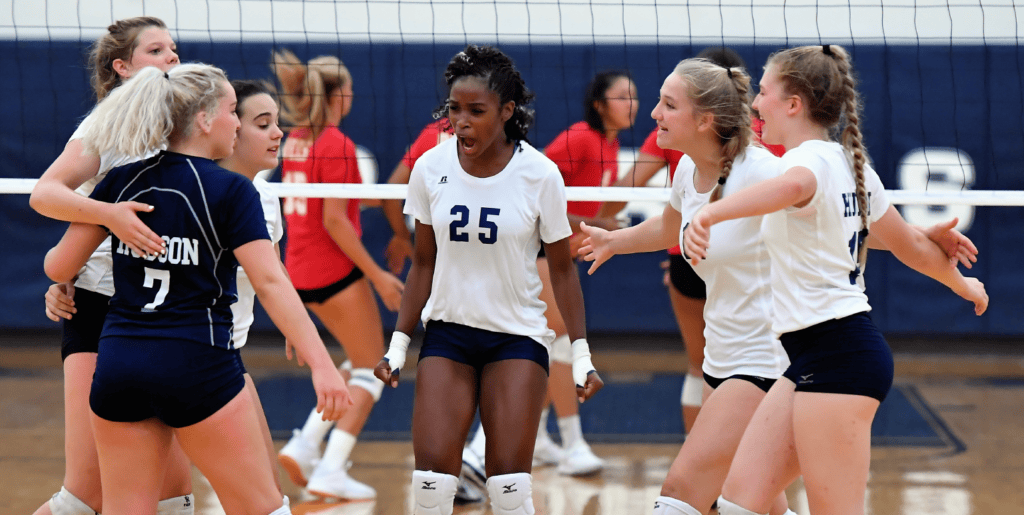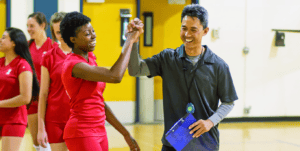PCA Resource zone
What Makes a Great Teammate?

Written with Founder and Executive Director of Head Start Basketball, Mike Klintzing
Good teammates can turn a good sports experience into a great sports experience. Every player has the ability to provide the support necessary to be a great teammate.
Great Teammates:
Give relentless effort: You cannot control many things that will happen during your season, but you can control how hard you play. The only way to get better is to give your maximum effort. This not only makes you better but pushes your teammates to get better as well.
Are unselfish: Put the team first. Your job is to do what it takes to help the team be successful. This isn’t always easy, but great teammates find a way to put the success of the team above their own success.
Are honest: All great teams and relationships are built on honesty. Your coach and teammates need to know that they can trust you during the ups and downs of a season.
Are humble: You may be the star of your team, or you may be a role player, either way, remember that the team comes first. Put your individual accomplishments aside and give praise to your teammates. Teams succeed when no one cares who gets the credit.
Hold themselves and their teammates accountable: You should have high standards for yourself and your teammates. If a teammate is not fulfilling their duty to the team, engage them in a supportive conversation to help get them back on track. You might need to help them buy into a particular strategy, help them accept their role on the team, or simply hear them out. Be the player that reaches out to your teammates to help the team as a whole.
Strive to improve: You can always be a better player tomorrow than you are today. Work to improve your game and you will lift your teammates. Stay and work after practice and see how many teammates start to join you.
Are optimistic: Don’t be a player constantly complaining to others about what’s wrong. Look for the positives in your teammates and coaches.
Behave respectfully towards others: Treat everyone involved in your sport experience with dignity. Behave as you would toward anyone, as the best version of yourself, to be true to yourself. By modeling behaving respectfully, no matter the challenges you face, you’re showing teammates that they can too.
Are leaders: You don’t have to be the best player on your team to be a leader. You don’t even need to be a vocal leader. Every player can lead by their actions. Is what you do on a daily basis making your team better? Challenge your teammates during drills. You’ll improve and so will they. Bring energy to every practice. Don’t talk bad about teammates or coaches outside the team environment. These are all ways you can lead your teammates towards success.
Are resilient: Help your team use temporary setbacks or losses as an opportunity to grow and improve. Don’t make excuses, look for solutions. Your ability to bounce back and learn from mistakes will be infectious and help make your entire team more resilient. In any situation, one player’s positive outlook can make a difference. Try to be that player.
Help foster a family atmosphere: Support your teammates like family. Your season is going to have highs and lows, so are your teammates. Teams that build close relationships are usually the teams having the most fun and having the most success.
Take responsibility: All of your actions, within and away from the team, are a representation of your team, your school or organization, and your family. Take responsibility for your behavior and actions at all times. Conduct yourself in such a way that your parents, coaches, and teachers would be proud of you. You never know who is looking at you for cues on how to behave.
Mike Klinzing is Founder and Executive Director of Head Start Basketball (Cleveland, OH). Offering youth basketball camps and basketball skills training for over 20 years, Head Start Basketball uses the game to improve character, develop leadership skills, and promote sportsmanship.







